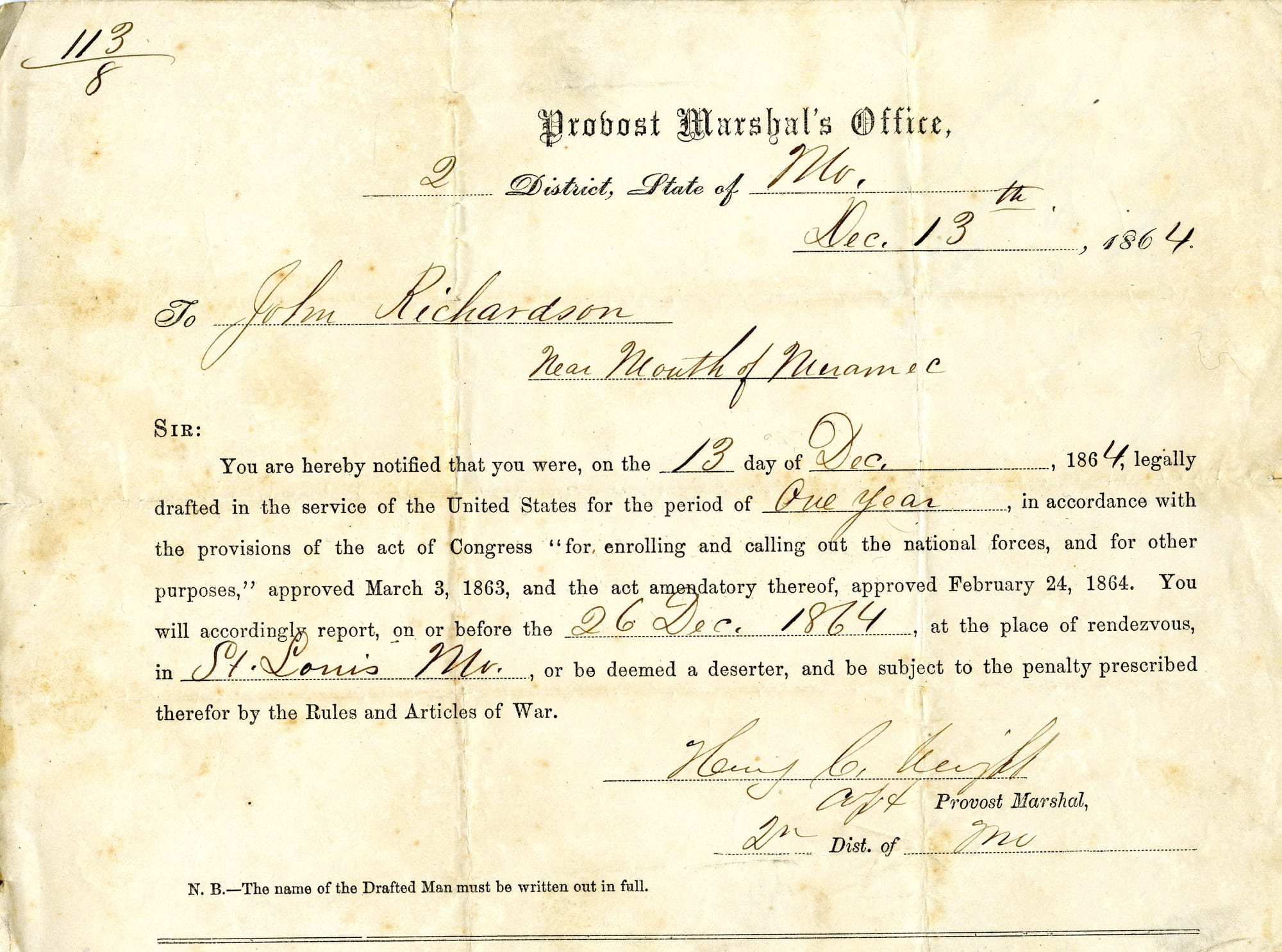Records of Conscientious Objectors, Deserters, and Substitutes During the Civil War
Pennsylvania had the largest number enroll in the Union Army and the largest number oppose service.. Here's how to find out if your ancestor was in opposition to military service.

Pennsylvania since its founding had people who opposed participating in military conflicts.
The Quakers who founded Pennsylvania were well-know for their opposition to war and military service. They crafted state laws generous to those who agreed with their position and naturally attracted more people like themselves. By the time of the Civil War, the state had the largest number of men opposed to military service, both as a percentage of the population and in absolute number.
This opposition to service showed up in three ways: conscientious objection, substitution, and desertion.
Three Categories of Opposition to War
One category of such people against the war was based on their religious principals or philosophical belief. The term for this in the 19th century was having "conscientious scruples", but in common language today we use the term "conscientious objectors" or "pacifists".
Another category of people who did not wish to serve in the military were the wealthy, and they could afford to buy their way out of service. During the Civil War the federal government would accept a substitute for a $300 fee. The substitute would be a young man, usually a first generation immigrant, recruited to serve.
The final category were men who were drafted to serve, but later walked out of the camps or battles without authorization from a military officer. This was filed as desertion with the federal War Department. By 1863, up to 6,000 men a month were deserting from service.
If you had a male ancestor in Pennsylvania during the U.S. Civil War, 1861-1864, who did not participate in the war despite being between the ages of 21 to 45 years old, you may want to check the listings of conscientious objectors, substitutes, and deserters. (But first check make sure that they did not enroll by checking service lists and pension records.)
Fortunately these records are all in the same collection. Read on to learn more.
